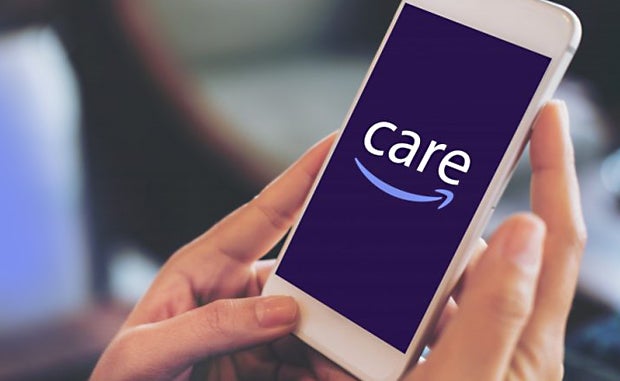

Amazon Care’s Vision: Access to a Clinician in 60 Seconds, In-Person Care within an Hour

Amazon is pursuing an aggressive strategy to rapidly scale its telehealth service, known as Amazon Care, not only to all its employees but to other employers. But like most of the e-commerce giant’s health care aspirations, Amazon officials have been notoriously tight-lipped.
That changed recently, when Babak Parviz, vice president of Amazon Care, said the company already has signed multiple employers to use the service later this summer and that it is considering bringing the service to rural areas in the future, a move that would require hiring thousands of new employees.
Speaking at The Wall Street Journal’s Tech Health virtual event earlier this month, Parviz also clarified Amazon Care’s plans to include in-person services as part of the program. Initially, in-person services only will be offered in Washington state (home of Amazon’s headquarters) and metro areas including Washington, D.C., and Baltimore.
Amazon is moving “as fast as we can” to make the full suite of Amazon Care services available to other locations, Parviz said. Launched in 2019 for employees in and around its Seattle headquarters, Amazon Care provides virtual urgent care visits, free telehealth consults and in-home visits for testing and vaccinations from nurses for a fee. In March, the company announced the program would be offered to all its employees and to other employers around the country. Precor, a Washington-based fitness company, became the first employer to sign on for Amazon Care services.
Amazon Care connects users with a clinician via chat or videoconference in less than 60 seconds. When in-person visits are required, Amazon Care sends a mobile clinician to the member’s door typically within an hour and medications can be delivered to patients within two hours, Parviz said.
He believes companies realized during the pandemic and going forward that workforces will be structured differently, as will the way they work. He expects a hybrid approach to work settings and that health care needs to respond by bringing services to patients instead of coming to a central location. That message apparently is resonating with a growing number of companies.
Other health care disruptors like Walmart are also expanding their telehealth programs. The retail giant recently filed paperwork to expand its virtual care services into 16 more states.
IMAGE HERE(Amazon Care’s Vision: Access to a Clinician in 60 Seconds, In-Person Care within an Hour. A user has the Amazon Care app displayed on her mobile phone.)
Amazon is pursuing an aggressive strategy to rapidly scale its telehealth service, known as Amazon Care, not only to all its employees but to other employers. But like most of the e-commerce giant’s health care aspirations, Amazon officials have been notoriously tight-lipped.
That changed recently, when Babak Parviz, vice president of Amazon Care, said the company already has signed multiple employers to use the service later this summer and that it is considering bringing the service to rural areas in the future, a move that would require hiring thousands of new employees.
Speaking at The Wall Street Journal’s Tech Health virtual event earlier this month, Parviz also clarified Amazon Care’s plans to include in-person services as part of the program. Initially, in-person services only will be offered in Washington state (home of Amazon’s headquarters) and metro areas including Washington, D.C., and Baltimore.
Amazon is moving “as fast as we can” to make the full suite of Amazon Care services available to other locations, Parviz said. Launched in 2019 for employees in and around its Seattle headquarters, Amazon Care provides virtual urgent care visits, free telehealth consults and in-home visits for testing and vaccinations from nurses for a fee. In March, the company announced the program would be offered to all its employees and to other employers around the country. Precor, a Washington-based fitness company, became the first employer to sign on for Amazon Care services.
Amazon Care connects users with a clinician via chat or videoconference in less than 60 seconds. When in-person visits are required, Amazon Care sends a mobile clinician to the member’s door typically within an hour and medications can be delivered to patients within two hours, Parviz said.
He believes companies realized during the pandemic and going forward that workforces will be structured differently, as will the way they work. He expects a hybrid approach to work settings and that health care needs to respond by bringing services to patients instead of coming to a central location. That message apparently is resonating with a growing number of companies.
Other health care disruptors like Walmart are also expanding their telehealth programs. The retail giant recently filed paperwork to expand its virtual care services into 16 more states.



